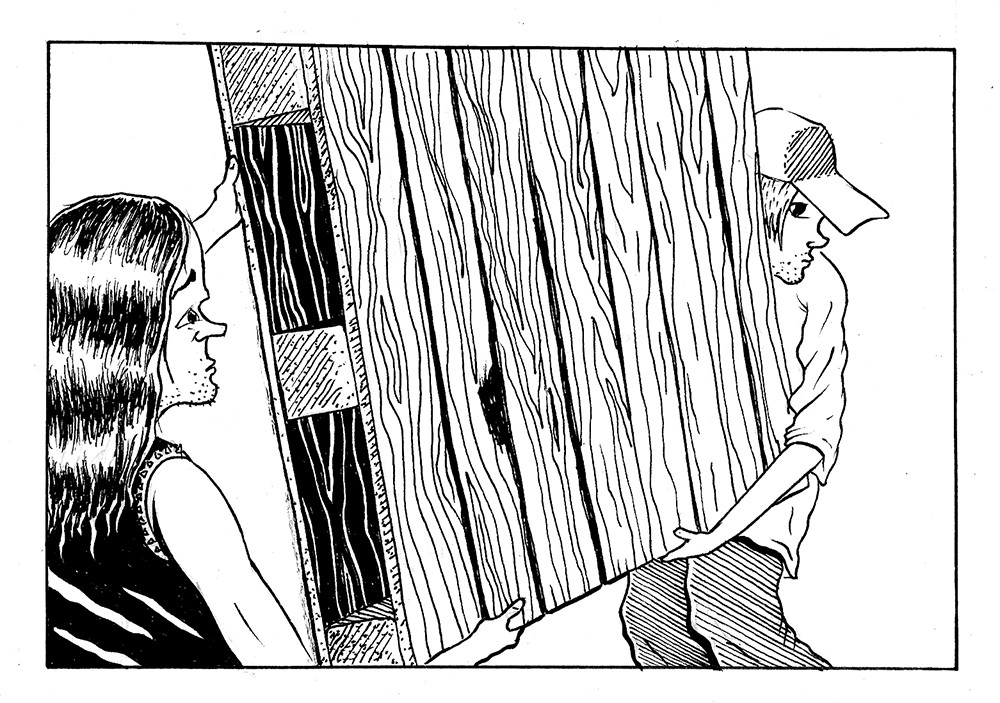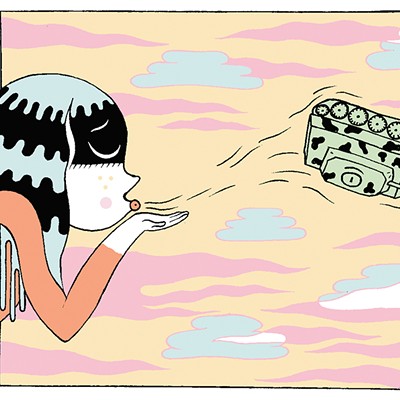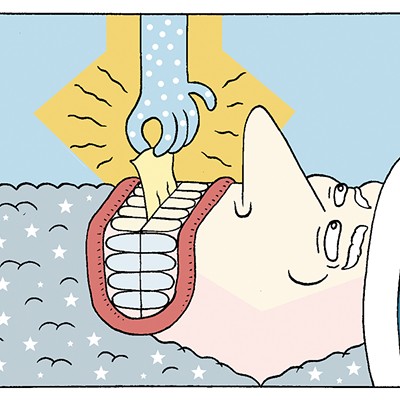We've been told by business leaders and politicians that street kids deter commerce and pose a public nuisance. These kids, we're told, have rejected our notions of community and scoffed at our laws.
Here's an alternate theory: Street kids live outside our community because we have never invited them in.
The Sunday after Bazaar — a one-day street market for emerging artists and craftspeople — we had a monstrous task ahead of us: moving 150 pallet walls to a storage space with just six volunteers. The work was arduous and slow-going. Soon after we began, two young men from a group who had been standing in the alley walked over and started grabbing pallets. They didn't ask to help, they just began helping. And it became clear immediately that they weren't screwing around, hefting each section of wall, then jumping right back to grab another. We later found out they had asked a volunteer the night before when our work would begin and then returned at the appointed time.
Eventually we started talking, and learned that the guy in baggy T-shirt and matching cap was named Johnny. His friend, in leather bondage pants and matching vest, told us, "Around here, people call me Corpse."
After an hour of working, Terrain co-founder Ginger Ewing (my fiancée) offered to buy them lunch. Corpse looked a little unsure. Ginger continued, "We can walk down and get a sandwich or something." Johnny — the more talkative — said yeah, that would be nice.
I had assumed, to that point, that Corpse and Johnny were helping because they wanted something in return. That interaction changed my mind. Corpse and Johnny's hesitant response to even basic human kindness made me wonder if they're living outside polite society because polite society put these kids on their ass decades ago and shut the door behind them.
Corpse didn't talk much about his past, but Johnny said he took his first job at 14, lying about his age to gopher around a construction site. Slowly, they opened up more. Johnny took off his shirt, revealing, below his sternum, a roughly tattooed swastika.
Johnny was open about the mistakes he had made. He talked about his parole officer and wore the marks on his body — the tattoo among them — without pride or shame. Ginger is black and Diego Sanchez, another Bazaar organizer, is Mexican. They both felt like Johnny treated them with respect.
I'm not saying there aren't serious issues of vandalism and violence in this town, and I'm sure some of that is due to troubled and transient populations of young people, but there's clearly more to this story than gangs of roaming barbarians.
I can't help but think if we stop treating these people like outsiders and more like members of our community, many of our problems will go away.
Corpse and Johnny worked hard for more than three hours before we all sat down in the empty storefront we had used as our headquarters. We shared pizza and drank warm-ish beer. At one point, a friend of theirs came in and started looking around, but Johnny shooed him out. "This is their place," Johnny said.
The storefront, formerly Saad's shoe store, had been storage for all our bags, purses and laptops. Throughout the weekend, I had wondered if anything would get vandalized or stolen. With Johnny acting on our behalf, my fears went away. ♦
Luke Baumgarten, a creative strategist at Seven2 and former culture editor of the Inlander, is a co-founder of Terrain, which organized Bazaar on June 21 in downtown Spokane.






















